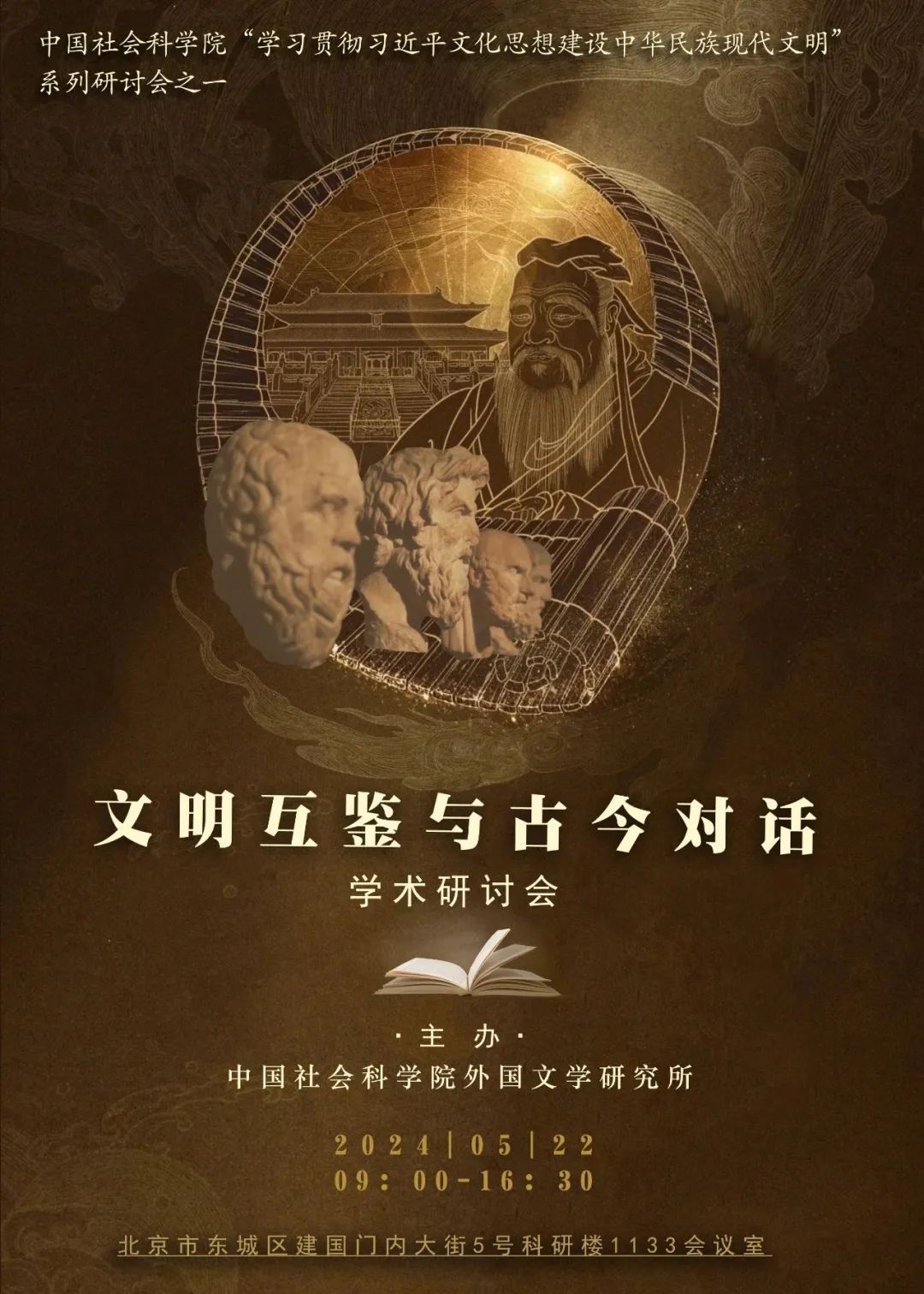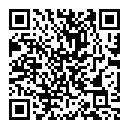

Trends
Collaborations
Meeting Minutes|Symposium on "Mutual Learning among Civilizations and Dialogue between the Ancients and the Moderns"
2024-06-01
Sourced from WeChat Official Account: Research in Classics

On May 22, 2024, the symposium on "Mutual Learning among Civilizations and Dialogue between the Ancients and the Morderns" hosted by the Institute of Foreign Literature, CASS was held in Beijing. As part of the CASS symposium series on "Studying and Implementing Xi Jinping's Thought on Culture to Build a Modern Civilization of the Chinese Nation," this event adhered to the principle of the "Two Integrations", which consist of integrating the basic tenets of Marxism with China's specific realities and integrating these tenets with the best of China's traditional culture, and focused on themes such as mutual learning among civilizations and world literature, intercultural dialogue in the perspective of global history, classical virtues in a modern context, and the translation of classics and intercultural dialogue for dialogue and exchanges.
I. Mutual Learning among Civilizations and World Literature
Whether it is the historical eastward spread of Western learning or today's mutual exchange between civilizations, classic works, as vital carriers of cultural heritage, hold unique significance. Based on the reflections of French geographer Élisée Reclus (1830-1905) on Sino-European relations, Liang Zhan, deputy director and research fellow at the Institute of Foreign Literature, CASS, traced the historical journey of China's engagement with Western civilizations. Whether it was through assimilating Western learning into Confucianism, the independent development of Western studies, the reinterpretation of Chinese tradition through Western lenses, or the reconstruction of a new civilization, China's foreign literature studies has taken on the noble mission of reconstructing modern Chinese civilization and forging a new cultural identity through translation, research, reflection, critique, and assimilation of Western civilization.
Drawing on the historical context of cultural exchange between China and Europe in ancient times, Professor Zhang Xiang from the School of Liberal Arts, Minzu University of China (MUC) delved into the capacity of Chinese civilization to absorb and integrate foreign elements while maintaining its own identity, in light of the current development of industries related to cultural creativity. Research Fellow Chen Lei from the Institute of Foreign Literature, CASS used British literary classics like The Canterbury Tales and Beowulf to underscore the significance of studying foundational works of civilization in understanding and drawing lessons from different civilizations. By examining the century-long history of translating ancient Greek tragedies into Chinese, Professor Chen Rongnv from the Institute of Comparative Literature & Culture Studies, Beijing Language and Culture University (BLCU) illustrated the role of Western classical literature translation in facilitating mutual learning among civilizations and promoting a more nuanced and adaptable understanding of other civilizations. Associate Professor Feng Qing from the School of Philosophy, Renmin University of China (RUC) systematically examined the evolution of academic concepts and philosophical awareness behind world literature studies and pointed out that the perspective of intercultural dialogue offers valuable insights and inspiration for modern academic research and intellectual discourse.

The Symposium
II. Intercultural Dialogue in the Perspective of Global History
As global interactions among nations continue to intensify, the way we perceive other civilizations and foster effective cross-cultural exchanges has become an unavoidable issue. By examining the life and works of German geographer Georg Forster (1754-1794), particularly his circumnavigation and the influential cross-cultural classic A Voyage Round the World, Li Yongping, research fellow of the Institute of Foreign Literature, CASS, shed light on Forster's reflections on cultural diversity and unity, the convergence of perspectives, language, and translation. Li also discussed how these ideas provide inspiration for communication among different nations and mutual learning among civilizations.
Associate Professor Zhang Yongle from the Institute of Area Studies at Peking University introduced Fukuzawa Yukichi's (1835-1901) theory of civilization to explore the relationship between capitalism and morality. He also reviewed the relevant attempts of Western countries and their implications by drawing on 20th-century world history. Drawing on new perspectives and recent developments in global history studies, Fu Zheng, Assistant Research Fellow at the Institute of Philosophy, CASS, posed thought-provoking questions about reinterpreting world history and the role of Chinese civilization within this narrative, citing historical examples of comparisons between Chinese and Western civilizations. Yao Xiaoyu, Lecturer at the School of Government of UCASS, analyzed three perspectives on understanding different civilizations using the examples of Hegel (1770-1831), Jaspers (1883-1969), and Voegelin (1901-1985). He emphasized how the scope of intercultural dialogues and comparative studies plays a role in relevant practices. He Qingchuan, Lecturer at the School of Philosophy at Beijing Normal University (BNU), traced the evolution of the term "civilization" from classical to modern meanings, highlighting the historical characteristics of modern implications of civilization and their impacts, as well as the philosophical questions that need to be addressed to confront these challenges.
III.Classical Virtues in a Modern Context
Virtue, a critical concept in ancient ethics and political order, reflects the evolution of civilization through its complex role in modern contexts. By analyzing modern literary works and discussions in ethical and political discourse, Professor Li Meng from the Department of Philosophy at Peking University (PKU) pointed out that, despite shifts in its meaning and status, the concept of virtue remains relevant in the modern framework and has become a concept that reflects the ongoing dialogue between contemporary and ancient thought. However, in a context centered around modern institutions, the discourse of virtue as a description of personal qualities and character has been supplanted by the notion of selfhood. The continuity and evolution of classical virtues within the modern setting are thus significant for comprehending both past and present.
Professor Wang Wenhua from the Department of English at the University of International Relations (UIR) presented three examples of virtue from Chinese and foreign contexts to illustrate that the meaning of virtue can vary across different eras and civilizations, underscoring the need for a nuanced approach in both intercultural dialogue and comparative studies. Research Fellow He Bochao from the Institute of Philosophy of CASS compared modern ethical theories, such as deontology, and discussed the implications and challenges of virtue ethics in modern contexts from such areas as the object of study, educational values and issues of authority. Associate Professor Lou Lin from the Center for Classical Civilization at Renmin University of China (RUC), explored how classical wisdom and virtue respond to modern challenges through dialogues on knowledge in Plato's Theaetetus and the reception history of "Conduct of the Scholar" from the Book of Rites (Li Ji). Assistant Professor Pang Liang from the PKU Research Center for Chinese Politics (RCCP) examined how modern thinkers engage with classical resources and explored the relationship between virtue and modern politics by referencing Rousseau's (1712-1778) appreciation of Chinese music and Hobbes' (1588-1679) theories on natural law and the education of the sovereign.

The Symposium
IV. Translation of Classics and Intercultural Dialogue
The translation of classics plays an irreplaceable role in understanding other civilizations and promoting dialogue and exchange among different cultures. Professor Gu Yu from the Department of German of the School of Foreign Languages at Peking University (PKU) shared her insights on translating Faust and emphasized that the translation of classics must be integrated with academic research and conveyed in the corresponding Chinese language and style. Translators need not only a firm grasp of the relevant subject matter and a deep understanding of the author's thought processes and core beliefs, but also familiarity with the work's literary nuances and a rich repertoire of Chinese expressions, which enables translators to accurately interpret the work and convey it in appropriate Chinese language.
Associate Professor Min Xuefei from the Department of Spanish and Portuguese of the School of Foreign Languages, Peking University (PKU) argued that the concept of mutual learning among civilizations should also encompass perspectives from the Global South. Portuguese is a language of the Global South and the translation of Portuguese classics can foster direct intercultural dialogue among these nations. Professor Huang Weiwei from the Center for Greek Studies at the Beijing International Studies University (BISU) discussed the challenges faced in the Chinese translation of ancient Greek classics by drawing from her translation and teaching experience. She also discussed the tradition of fables in ancient classics, highlighting the pivotal role of classic translation in interpreting and guiding civilizations. Yan Di, Lecturer from the Xinya College, Tsinghua University discussed the impact of artificial intelligence on translation and explored the advantages that translators have in handling language, text, commentary, and interpretation. Additionally, she discussed the challenges of positioning and selecting classics for translation in contemporary China. Research Fellow He Fangying from the Institute of Foreign Literature, CASS argued that the translation of classics is not only an important component of academic research but also facilitates the absorption and assimilation of outstanding achievements from other civilizations. In this light, the translation of classics is always inextricably linked to the self-shaping and self-renewal of civilizations.
The holding of this seminar has played a positive role in deepening the study and implementation of General Secretary Xi Jinping's important speech at the Meeting on Cultural Inheritance and Development, strengthening cultural confidence, and promoting research and discussion on mutual learning among civilizations.




